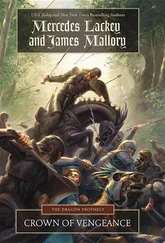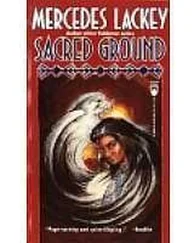:You’re enjoying this,: Kantor accused.
:Hush. I’m busy.:
The fact was, he was enjoying this. It was the first hint of trouble, real trouble, his sort of trouble, that he’d had in moons.
As he approached the man, he stared at him—easy enough to do, since there were streetlamps here. Then he contorted his face into an expression of rage and roared.
“ You! You bastard! Thought you could ruin my sister and run away, did you? ”
And then he flung himself at the startled man.
As he had expected, the man was not startled for long, and he was armed. So what the surprised constable saw when he turned was a man with a knife attacking an unarmed man. Since he couldn’t know which of the two of them the accusation had come from, he assumed—as any good constable would—that the man with the knife was the attacker, not the defender.
That Alberich was in no danger from a mere knife was something he couldn’t know. So, to his immense credit, he waded in himself, wielding his truncheon and blowing a whistle for dear life to summon help. He was aiming most of his blows for the head of the knife wielder, and Alberich helpfully positioned the target so that, by the time the help arrived, his quarry was out cold and he was able to protest feebly that he didn’t know what the madman was talking about, he’d just jumped for him with a knife, screaming about a sister. . . .
***
“We have to stop meeting like this, Herald,” said Captain Lekar of the City Guard, with a feeble attempt at humor. “People are going to start talking.”
“I fervently hope not,” Alberich replied, rubbing his wrists where the conscientious constables had tied them—being too wise ever to take one potential miscreant’s word over another’s. He warmed his hands on his cup of tea, but did not drink from it. The herbal teas consumed by the night shift of the City Guard were not drinkable, even by the standards of a former Karsite Sunsguard. “If talk they do, my personae will in danger be.”
“Yes, well, I wish you’d find some other way of catching your lads without getting the both of you thrown in jail,” the Captain replied wearily.
Since this was only the third time that Alberich had used that particular desperation ploy, he held his peace. “Keep him safe,” was all he said. “Speak with him under Truth Spell I wish to, when he awakens.”
The Captain did not ask why. The Captain did not want to know why. The Captain was an old friend of Herald Dethor, Alberich’s mentor in this business, and he knew very well that he did not want to know why. And Alberich knew that he knew, and both were content with the situation.
Now, if this had been Karse —he reflected soberly, as he left the City Jail by an inconspicuous exit, making certain that there was no one to see him leave.
:If this was Karse, and you were an agent of the Sunpriests, that man would be in extreme pain for a very long time, and at the end of it, he would be dead,: Kantor said.
:He may still be dead when this is over,: Alberich replied, grimly, making his way toward the stable of the Companion’s Bell. :But if he is, at least it won’t be by my hands.:
:If he’s lucky, we’ll find out he’s just a troublemaker.: Kantor didn’t sound as if he really believed that would be the case.
Yes, and if that happened to be true, well, there was no law against speaking out—or having someone else speak out—against the Monarch. Laws like that only made for more trouble; some people always had to have a grievance, and making grumbling illegal was a guaranteed way of ensuring that grumbling turned into resentment, and resentment into anger. If that was the case, he’d be let go, with the vague memory of having proved he didn’t know anything about anyone’s sister to the satisfaction of the City Guard.
If it was not the case—
Well, there was one Herald in the Circle who had no trouble with dirtying his hands with difficult jobs. Alberich would find out who had sent this fellow down into the dark parts of Haven to foment discontent. And he would follow that trail back as far as it would go.
And the man would still be let go—but this time with the very clear memory of having been questioned under Truth Spell by a Herald. Chances were, he would cut and run, and hope his employers never found him. That would be convenient, because it would take the problem off of his hands.
And if he didn’t run—his employers would probably take the problem off Alberich’s hands a little faster.
He collected Kantor and the two of them made their way up to the Collegium—Alberich feeling the effects of the truncheon blows that had connected with him, and Kantor brooding. Alberich didn’t press him as to the subject of his brooding; whatever it was, Kantor would talk about it when the Companion was good and ready and not one moment before.
And in fact, as Alberich hung up his saddle, Kantor finally spoke. :I hope this doesn’t mean it’s all starting again.:
Alberich sighed. :My good friend—I hope this doesn’t mean it never finished.:
2
“Why is it always me?” Myste asked, as Alberich made his second trip of the night down into Haven, this time with her in tow. The scholarly Herald pushed her lenses up on her nose and shivered beneath her cloak.
“Because you have the strongest Truth-sensing ability in the Collegium,” Alberich said. “And because the two of us can speak in Karsite. If our naughty boy doesn’t understand Karsite, he won’t know what we’re talking about, and it will make him nervous, and if he does, you’ll know it, and we’ll have him where we want him.”
“Bloody hell,” she said with resignation, and pulled the cloak tighter around herself. She hated cold, she hated winter, and she hated being dragged out of her study, and he knew all of that. He also knew that unless someone dragged her out of her study periodically, she would hibernate there for as long as the cold lasted. Which was, so far as he was concerned, just as valid a reason for making her his assistant in this case.
The city jail was not bad as such places went. It was clean, insofar as you could keep any place clean considering the standards of hygiene of the inhabitants. It smelled of unwashed bodies, with a ghost of urine and vomit, for no matter how many times the cells were cleaned, someone was always fouling them again. It did not smell of blood. If anyone was so badly injured as all that, they went under guard to a separate set of cells that had a Healer in attendance. And it went without saying that no one here—at least, among the jailers—spilled the blood of the prisoners.
Of course, the conditions were spartan and crowded, and no prison was a good place. But compared with those jails that Alberich had seen in Karse—
—not to mention the ones that were rumored to exist—
Myste grimaced as they rode in at the stable, and grimaced again as they walked in through the front door. Alberich was wearing his Whites—no one looked at a Herald’s face, they only saw his Whites. The prisoner would see the Whites and not even think that the man inside the white uniform might be the madman that had attacked him.
They were taken to a little room, windowless, lit by a single lantern, that held a single chair. The chair was for the prisoner, whose legs would be tethered to it; Myste and Alberich would be free, so that they could evade any attacks he might try.
The prisoner was brought in and his legs shackled to the legs of the chair. He was as pale as a snowdrift when he saw who was there to speak with him.
Читать дальше











